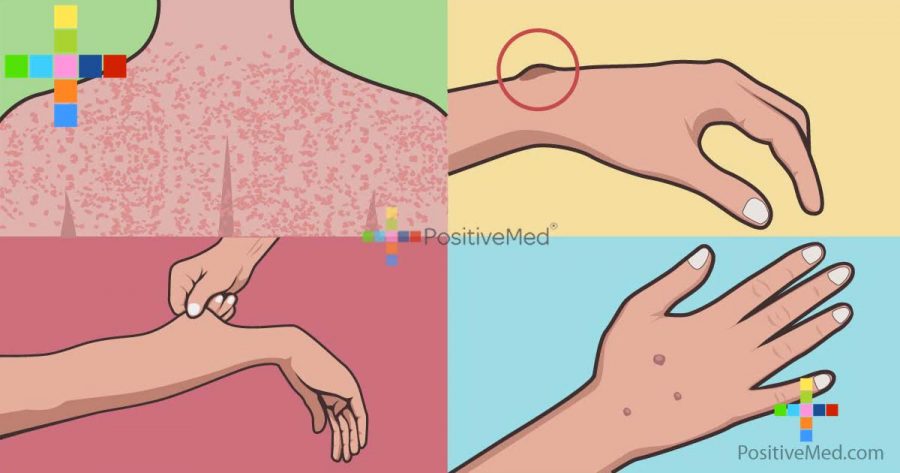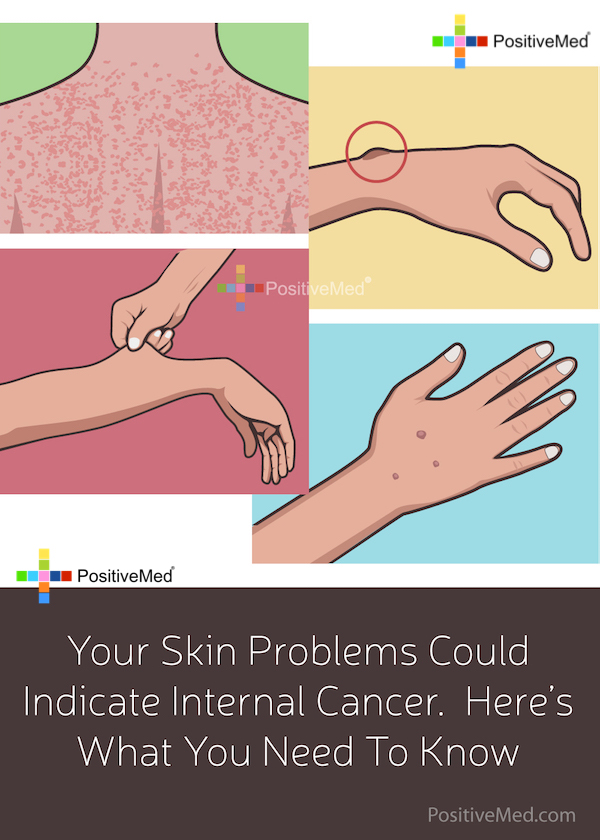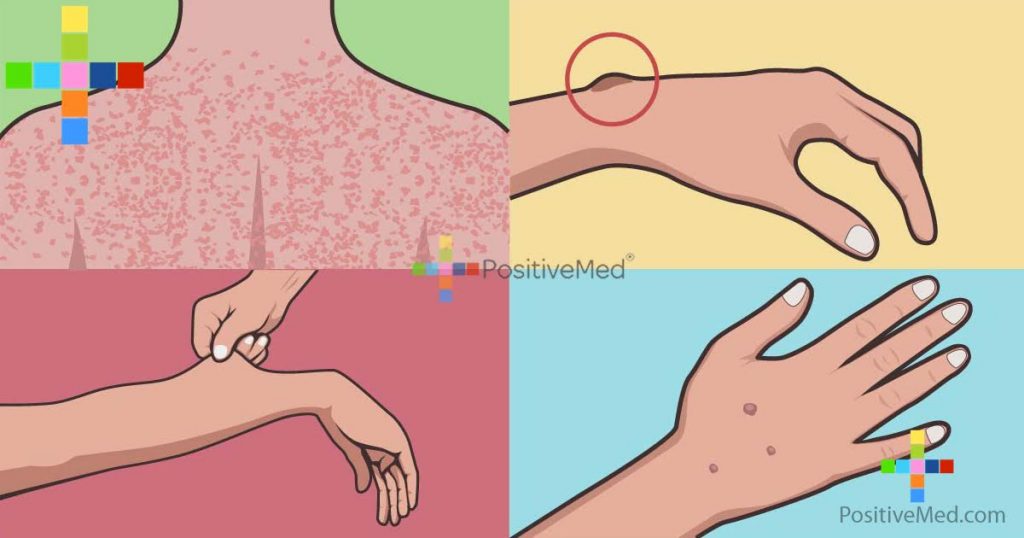Most people understand that changes in a mole, the appearance of an unusual mole or a sore that doesn’t heal may mean skin cancer. But there are other changes to the skin that may indicate other types of cancer that are occurring inside of the body. Here are a few changes in the skin that may be signs of internal cancer:

• Rashes
A symptom of a rare type of blood cancer is a fiercely itching rash that can cover the patient’s entire body. The rash is so severe that it causes the patient’s skin to flake and peel and forms hard plaques. The rash response poorly or not at all too typical treatments such as steroids.
This rash is a symptom of mycosis fungoid, which is a type of lymphoma. A lymphoma is a kind of blood cancer where certain types of white blood cells proliferate out of control. The cancerous cells actually travel to the skin and cause the rash. In its later stages, mycosis fungoid turns into a condition called Sézary syndrome, where the malignant cells circulate through the blood and become more and more aggressive and hard to treat even after bouts of cancer treatment.
One sign of ovarian or kidney cancer is a violet rash on the upper eyelids. The rash also appears on places on the body that are exposed to sunlight. The patient’s knuckles may develop scaly bumps and blood vessels appear in the folds of the nails. The cuticles may become ragged and pull away from the nails.
Loose, Doughy Skin
Skin that is doughy and silky to the touch, much like a well-kneaded bread dough, may be a sign of lymphoma or another blood cancer called multiple myelomas. This skin condition is called acquired cutis laxa.
Lumps Or Thickenings
Some cancers manifest as lumps under the skin or a thickening of the skin. They can be felt in the breast, lymph glands, testicles or other soft tissues in the body. Cancerous lumps in the breast can be hard to uneven edges or soft and round. In some breast cancers, the skin is thickened or inflamed.
Other signs of breast cancer that affect the skin are scaliness around the breast and pain in the nipple. The nipple itself may turn inward. The skin of the breast may dimple in a way that recalls the skin of an orange.
RELATED ARTICLE: What The Medical World Doesn’t Want You To Know About Cancer
Hirsutism
This is the growth of unwanted hair. In women, the hair starts to grow in coarse and dark and may start to appear on the face or chest. Some cancers that cause hirsutism are cancers of the ovaries and adrenal glands. The excess hair starts to appear because the tumors cause the body to secrete more male hormones than normal.
Jaundice
Jaundice is a yellowing of the person’s skin and eyes. It means that there’s too much of a substance called bilirubin the patient’s blood. Bilirubin is made by the breakdown of dead red blood cells that the body usually gets rid of. Jaundice can be a sign of:
• Liver cancer
At about three pounds in an adult, the liver is the largest organ of the body saves the skin. It is responsible for many processes of digestion and metabolism and is a storage area for many types of nutrients. Liver cancer can start in the liver or come from a distant site in the body.
• Pancreatic cancer
The pancreas is responsible for creating insulin, which helps the body break down glucose or simple blood sugar, to use for energy.
Skin Cancer
Of course, changes in the skin are often early signs of skin cancer. A mole should be examined by a dermatologist if it is more than one color, asymmetrical and larger than the diameter of a pencil eraser. It should also be looked at if it bleeds or crusts over and never seems to heal.
As can be seen, a variety of cancers can cause changes in the skin. A person who notices skin changes that don’t go away should contact their general physician or dermatologist.
Pin It!







